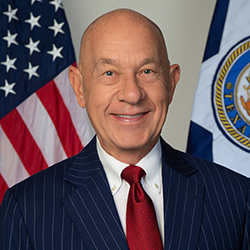Texas IVF patients are dealing with a lot of uncertainty right now.
Heather Burzlaff has four embryos in a freezer in Dallas and she doesn’t know what to do with them.
After seven years of medications, egg retrievals and waiting, the embryos are all the 38-year-old Flower Mound resident has left from the grueling in-vitro fertilization process, which resulted in no children. The embryos have genetic abnormalities that make it virtually impossible for them to result in a viable pregnancy. It’s a heartbreaking reality many IVF patients face in the pursuit of starting a family.
States away, the Alabama Supreme Court decided frozen embryos created through IVF — each only a cluster of cells made from a fertilized egg stored outside the uterus — are legally children and people can be held liable for their destruction. Already, Alabama clinics have halted IVF treatments while they determine whether they’re at legal risk.
Texas has issued no such ruling. But IVF patients like Burzlaff are scrambling to make a plan for their embryos in case that changes. Does she move her embryos to another state? Does she budget to pay for their storage for the rest of her life? Does she implant them at a point in her menstrual cycle when she’s least likely to get pregnant?
Burzlaff and her husband are in the middle of the adoption process through the foster care system. The Alabama decision, she said, adds another layer of complications to an already draining situation.
“The paperwork alone is overwhelming. Now you throw this into the mix and I just kind of want to shut down and stop,” Burzlaff said. “I don’t even want to build my family anymore. It’s too much.”
Texans raised concern over the future of IVF after the fall of Roe vs. Wade in 2022, but doctors and politicians alike assured them the procedure would not be a target of abortion restrictions. The move by Alabama’s top court has undone any sense of security IVF patients had.
[…]
Whether Texas will follow Alabama’s suit is yet to be seen. When asked during an interview on CNN whether IVF patients in the state should be worried, Gov. Greg Abbott said he supports IVF but that the question was complex.
Southern Methodist University professor and health law expert Seema Mohapatra said, at least in her reading of current Texas law, embryos have to be implanted in a pregnant person in order to be considered a child. That doesn’t mean legislators won’t try to change the definition of a child.
“Do I think there might be attempts? Yes. Do I think that they’re going to be successful? I would be surprised,” Mohapatra said. “But there’s a lot of things that have happened in Texas that I would not have thought would have happened two years ago related to abortion restrictions.”
Can’t imagine where the anxiety is coming from. I wouldn’t keep my frozen embryos here if I had the means to move them elsewhere. I don’t know what will happen in the next legislative session relating to IVF, though I do know that a “wrongful death” lawsuit that could easily end up threatening IVF directly is working its way through the legal system right now. I do know there will be a vocal constituency in favor of being consistent with their “life begins at conception” zealotry and applying it to IVF.
There will also be at least one bill to protect IVF.
A Texas lawmaker who is pursuing fertility treatments is calling on Gov. Greg Abbott to protect access to in vitro fertilization after the Alabama Supreme Court ruled that frozen embryos are children.
Rep. Mihaela Plesa (D-Plano) said she became concerned about the status of IVF in Texas after the Alabama Supreme Court’s ruling. She’s urging Texans to sign her petition to encourage lawmakers to protect and improve access to fertility treatments.
Plesa said access to IVF is a reproductive right — and one that is very important to her personally as she tries to start family.
“My mother is my hero,” Plesa said. “She’s the strongest woman I know, and I just hope to be able to be… a strong mother like her one day.”
The Alabama Supreme Court ruled last week that frozen embryos have the same rights as children under state law. The ruling was prompted by a wrongful death suit where three Alabama couples undergoing fertility treatment sued after their frozen embryos were destroyed.
“We really have to be careful when the judiciary essentially is now coming into your doctor’s office, because these are not medical professionals,” she said.
[…]
The largest hospital in Alabama stopped providing IVF treatment as a result of the ruling. Plesa said she wants to prevent something like that happening in Texas.
“That’s going to make this process more inaccessible, more expensive,” she said.
Plesa said she plans to file bills during the next legislative session to keep IVF legal in Texas.
Someone ask Greg Abbott if he’d support such a bill. You won’t get a straight answer, but ask anyway.
The fight over IVF is even bigger than just who gets to have a baby.
When Republican Rep. Byron Donalds of Florida announced on NBC’s Meet the Press last Sunday that he fully supports IVF because it is necessary to “create great families, which is what our country desperately needs,” and that IVF “helps them breed great families,” he gave away this darker game. This isn’t just about forcing pregnant people to carry babies; it’s also about the “domestic supply of infants” problem that the 14th Amendment was expressly crafted to redress: a sordid history of power and money and ownership of children, still baked so deeply into adoption and foster care that you almost don’t notice when the state coolly lays claim to the entire contents of a “cryogenic nursery.”
Nothing about this should shock you, at least not if you’ve been reading Dorothy Roberts. This is the two-step wherein the state forces women to have babies they cannot raise, does nothing to help support them, then swoops in to seize the babies when their parents are seen as endangering them—a phenomenon that of course predominantly hurts poor women and women of color. The state also ensures that adoptions flow in the direction of more “worthy” parents, which means heterosexual and Christian parents, a regime also built into the legal framework. The list of people who cannot assert autonomy and control over their potential children has, in the course of a few weeks, now expanded from LGBTQ+ parents, single parents, poor parents, and parents of color to anyone who has started the process of IVF in Alabama.
When Republicans insist that life begins at conception, and also that seven cell clusters constitute “life,” what they are saying—what they were always saying—is that we as a society need babies so badly that somebody should always be entitled to take control and custody over somebody else’s baby, and indeed of every potential baby. Because, at the end of the day, your babies don’t belong to you; they belong, variously, to God, to the GOP, to the state, and to those who want to raise them in your stead. That isn’t just about controlling women, then, or about fertility and the power to make economic and health decisions about one’s own life. This is about the government endlessly making determinations about who is fit to take your children away from you and raise them as their own. This is the Handmaid’s Tale version of religion, as Dorothy Roberts has long warned, and it’s embodied deeply in U.S. history and in long-standing policies. It is why women can be left to die of sepsis outside the ER, then be blamed by the government for having made bad choices. Their babies never really belonged to them in the first instance. And what Alabama established two weeks ago is that doctors and patients will have to make choices in the IVF context that privilege potential lives over their own family autonomy.
You may think all of this sounds very alarmist. I’ll remind you that many of the alarms that folks in the reproductive rights space have been ringing, pre- and post-Dobbs, have been coming true. I’ll also note that Republicans had the chance to give real protection to IVF this past week, in which they literally had to do nothing, and they failed to do so. When they show you who they are, etc etc etc.
To be fair, the Alabama Legislature is now trying to clean up the mess that their Supreme Court created. But they haven’t addressed the “embryos are actually children” issue in their state constitution, which is what that court based its decision on, and as such I think this will rear itself again.
Remember also that what happens in one wingnut state often gets copied elsewhere.
What could other states do?
There are a host of existing mechanisms that could be used to curb access to IVF.
Similar lawsuits to Alabama’s wrongful death case could be filed in other states. Louisiana already has a law that treats viable embryos as “judicial persons,” effectively meaning that embryos cannot be destroyed, though they can be transferred out of state. That law hasn’t stopped health care providers in the state from offering IVF, though it has made the process more cumbersome, physicians in the state said. They now have to send all excess embryos, including ones that will likely never be used for pregnancy, to out-of-state storage facilities.
Some legal scholars suggested that the Louisiana law could be leveraged in an argument for broader fetal personhood — the idea that a fetus, or even an embryo should be given the same legal rights as a person — and in turn reinterpreted to limit access to IVF. But so far, there are no pending cases in the state.
Laws granting legal protection to embryos — particularly so-called “fetal personhood” laws, which are on the books in 11 other states — could be interpreted to outlaw the discarding of embryos, making IVF, if not directly illegal, effectively impossible to provide. But those laws vary in their expansiveness, noted Mary Ziegler, a law professor at the University of California, Davis who studies the anti-abortion and fetal personhood movements.
Georgia’s fetal personhood law, for instance, only applies to embryos in the uterus and at six weeks of pregnancy and later, meaning it is unlikely to affect IVF. But an Arizona law, currently on hold while being litigated in federal court, applies personhood more broadly, including embryos. If upheld, multiple legal experts said, that is a law with the potential to undercut access to IVF.
More important, Ziegler said, is the makeup of individual courts and their willingness to embrace the same legal reasoning as Alabama’s. She pointed in particular to Florida and South Carolina, where members of the respective supreme courts have expressed interest in fetal personhood.
“You need a particular kind of group of people to make a ruling like this,” Ziegler said. “Definitely not just justices who are conservative but who are also interested in taking on this question at a time when doing so will be controversial and divisive.”
In other words, how crazy is your state’s judiciary? I actually think the Texas Supreme Court, as currently constituted, would be reluctant to go full Alabama here. That’s a good thing, because a case where that could happen is being litigated as we speak, and it will arrive at their doorstep one of these days. But it’s also of very limited comfort, because we have a Governor and a Legislature who can’t be trusted, and an Attorney General who likes seeking revenge on judges who dare to rule against him. If we don’t succeed at making the judiciary we have now better, it will absolutely get worse.
And finally, bringing things back to abortion for a minute.
Telehealth abortions continue to grow in popularity, even in states where anti-abortion activists try to ban them, according to new data published today.
Abortions obtained through virtual providers accounted for 15 to 16 percent of all abortions conducted between July and September of last year—amounting to about 14,000 abortions each month—up from 11 percent of abortions, or about 8,500, in December of 2022, according to the report, prepared by researchers from Ohio State University, the University of California, San Francisco, and the Society of Family Planning. The increase is partly thanks to the rise of shield laws, which protect providers who virtually prescribe and mail abortion pills to people in states with abortion bans, according to one of the report’s co-authors, Ushma Upadhyay, a researcher at the University of California, San Francisco.
Five states—Massachusetts, Colorado, Washington, New York, and Vermont—passed laws last year that protect telehealth providers who help people elsewhere in the country get abortions, according to Upadhyay. California enacted its shield law last month. As the New York Times reported last week, while these laws have not yet faced legal challenges, many expect them to. But in the meantime, they’re serving as the key to abortion access for people across the country: The Times reports that Aid Access, one of three main organizations providing telehealth abortions, serves about 7,000 patients a month, about 90 percent of whom are in states with abortion bans or severe restrictions. Advocates say telehealth abortion can also be particularly significant for low-income people and those in rural areas who may otherwise have difficulty accessing abortion clinics.
You can be sure that some of the activity to challenge those shield laws will come from Texas. We can do something about that this November, and again in 2026. It would be nice if we did.







:quality(70)/https://static.texastribune.org/media/files/d02f2511ee20f76c1b133f78550ec642/09_exc.png)





:quality(70)/https://static.texastribune.org/media/files/60de387735f4f5177c30fa25e09baa76/0229%20Wildfire%20Screenshot%205pm.png)
